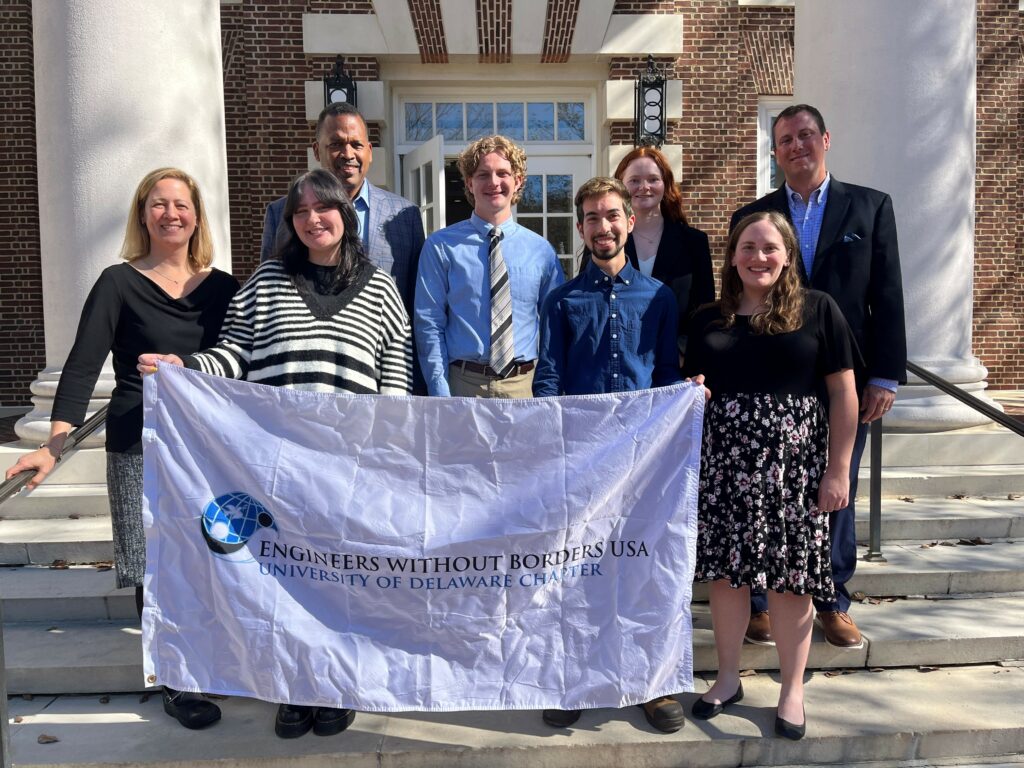222 Palisades Creek Drive
Richardson, TX 75080
Phone: 972-952-9393
Fax: 972-952-9435
Email: [email protected]
Project: Partnerships, perseverance, and progress: Overcoming the challenge of the COVID-19 pandemic to rehabilitate wells in Malawi
Project: Partnerships, perseverance, and progress: Overcoming the challenge of the COVID-19 pandemic to rehabilitate wells in Malawi
Students: Carley Williamson, Hannah Bockius, Drew Huffer, Charlotte Gottilla, Jerel Okonski, Dylan Belluardo, and Lexi Anderson
Faculty: Dr. Jennie Saxe and Dr. Julie Karand
What value does a real-world project bring to students?
Dr. Julie Karand and Dr. Jennie Saxe are faculty co-advisors of the Engineers Without Borders – University of Delaware Chapter. Their combined responses are below:
Real-world projects are a key component of a meaningful engineering education. Working on projects that involve different cultures and are community-centered allows students to develop interpersonal and stakeholder engagement skills that are extremely difficult to replicate any other way. It is also difficult for many packed engineering curricula to incorporate cultural skills, and opportunities such as this project, allow students to learn about engineering through a global lens. Students also get to engage in the full project cycle and develop the critical skill of adaptability. For example, our Malawi project team asks the communities in Malawi how we can work best with them each year, then plans out the logistics of the project, writes a contract, and helps to implement the work. They then go back the following year to identify how the project has made an impact, and perform any needed maintenance. These experiences will prepare our students for a career in ways that no traditional textbook-lecture approach can.
How do you decide what projects to work on?
The Engineers Without Borders – University of Delaware Chapter selects projects based on student interest, our available funding, the project timeline, and the availability of local partners. The student executive board forms a project selection committee which balances all of these goals and the larger general body of the organization votes on the next steps. The nature of the project is also considered, so we have different types of projects – for example water projects and structural projects – available for students of different majors to engage in. With the exception of the COVID travel restrictions in 2020-2021, we also travel about once per year, so travel logistics and costs are important, as well.
How did this project prepare students for professional practice?
This project served as professional practice “boot camp” for our students. Since this project was the first project we took on during the era of significant COVID-related travel restrictions, there was no template for this type of work. Students learned how to work through this uncertainty and document decisions made in the process. Students also honed their communication skills, as this was key to ensure a clear understanding of the project, since we were not on-site to resolve questions and provide guidance in real time. Student reflections from the experience have demonstrated that cross-cultural communication and project management skills are key skills they took away from this experience. In addition to learning to navigate uncertainty and communicate across cultures, students managed a budget, resolved conflict, enforced contract requirements, and sought guidance from experienced professional mentors. After the project, we noticed that they were able to approach large projects independently, professionally, and keep themselves on track.
What advice do you have for other programs wanting to add similar collaborative projects to their curriculum?
Ensure that you spend time working with your students on their communication and persistence competencies. Clear and effective communication is vital to enable sound engineering solutions to community-identified needs. Persistence is actually more complex than it may first seem. Other cultures may have different norms for the time it takes to accomplish a task or respond to an inquiry. Therefore, patience is important to allow for intercultural differences, but it must be balanced with the appropriate follow-up necessary to keep the project on schedule. Remind student teams that the advisors are also learning alongside them in working with new partners from the other side of the world, and to keep an open mind while working through any challenges.
